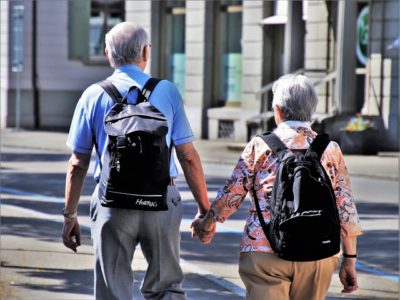Summer is here, providing an ideal time for people in Georgia to get active. While some people may talk about getting a “beach body,” fitness is more than just a matter of aesthetics – it can mean the difference between a long life and premature death.
Studies show 80 percent or more of premature chronic conditions, such as heart attack, stroke or diabetes, are influenced by modifiable lifestyle choices. Yet many Americans lack an understanding of the connection between lifestyle choices and chronic health conditions. A recent UnitedHealthcare survey found that just 16 percent of Americans correctly recognized that 80 percent or more of premature chronic conditions are caused by modifiable lifestyle choices, such as smoking or unhealthy eating (which can cause obesity), not by genetics.
To help make fitness a priority this summer, here are tips to consider:

Walk This Way: Studies have shown that walking more and sitting less may help people maintain a healthier weight, ward off depression and prevent serious health issues like heart disease. And a recent report concluded that walking can help curb cravings for sweets, boost the immune system and ease joint pain. To make walking more effective, think FIT, which stands for frequency (500 steps within seven minutes six times per day), intensity (3,000 steps within 30 minutes each day) and tenacity (at least 10,000 total steps per day).
Get Outside (Safely): The popularity of smartphones and streaming TV has made it easy – and entertaining – to stay inside. In fact, recent research has found that some people spend 90 percent of their time indoors, limiting exposure to daylight and fresh air. This can have negative consequences, especially when it comes to the health of children’s eyes. Studies have found that exposure to outdoor light may help reduce the risk of nearsightedness, the inability to see far-off objects clearly.
When possible, plan children’s outdoor activities for early morning or late afternoon when the sun’s rays are less intense. The peak sun intensity hours, when UV light is strongest, are between 10 a.m. and 3 p.m. standard time or 11 a.m. and 4 p.m. daylight savings time. By avoiding sun exposure during peak hours, sun exposure may be reduced.
To gain the potential benefits of being outdoors while helping stay safe, children and adults should wear sunglasses that block both UV rays and blue light, and should apply sunscreen to help reduce the risk of skin cancer.

Maintain Your Hearing: Summer is a popular time for sporting events and concerts, which can lead to exposure to loud sounds. Crowd noise at sporting events can exceed 90 decibels, while music concerts can reach 110 decibels. Prolonged exposure to sounds above 85 decibels can contribute to gradual hearing loss, so it is a good idea to use ear protection when seeing your favorite team or band. Likewise, extended listening to music or digital content through headphones or earbuds may damage hearing over time. To help prevent that, turn the volume on your electronic device to 60 percent and listen for no longer than 60 minutes at a time, and never use earbuds to listen to something else while you are using power tools or a lawn mower.
Stay Safe On Long Trips: With people heading out on summer trips, it is important to recognize that up to 20 percent of travelers suffer an illness or injury while on vacation. Before traveling out of your home state, review your health plan and understand what it covers, including if you have access to a national or local network of hospitals and health care providers. For people traveling overseas, contact your primary care doctor or travel medicine clinic to determine what pre-screenings or immunizations might be recommended or required, based on your health history and countries on the itinerary.
Following these tips may help you focus on fun, friends and family during the summer, while helping maintain or improve your health now and in the future.
Dr. Linda Britton is Southeast regional vice president and senior medical director for UnitedHealthcare.

